Beyond the Bottle
Delve deeper into English sparkling wine with the latest news, stories and insights from Ridgeview. From sustainable winemaking to secrets from the cellar, journey into a fascinating world that goes far beyond the bottle…
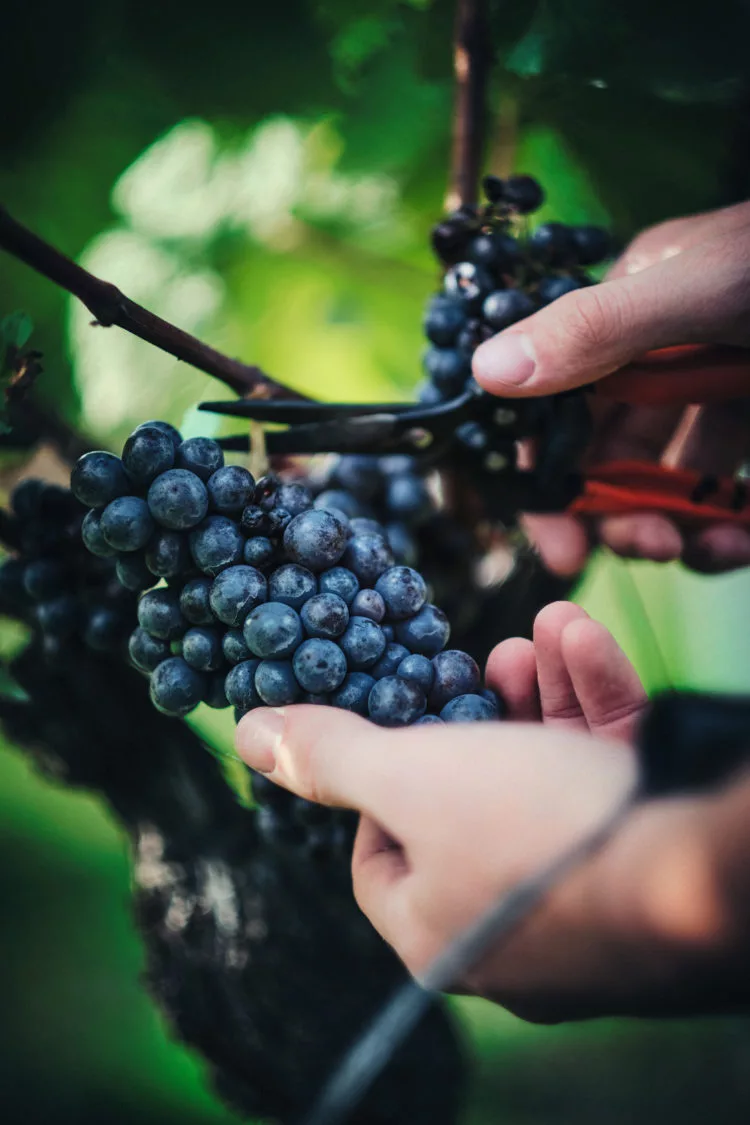
We are committed to sustainable winemaking practices, from vineyard to winery and from grape to glass. As a certified B Corp and founder members of Sustainable Wines of Great Britain (SWGB), we seek to set new standards for sustainable wine production. Both our vineyard and winery are accredited under the SWGB scheme, with our vineyard achieving gold in our recertification audit.
Our approach to sustainable winemaking uses practices to improve soil health and reduce the use of synthetic chemicals and herbicides. We’re committed to water and energy conservation to reduce our industry’s carbon footprint.
Initiatives in the vines include cover crop bio-diversity, improving soil structure and encouraging natural grape pests. In the winery, our underground cellars require no energy supply, relying on natural, ambient temperature control alone.
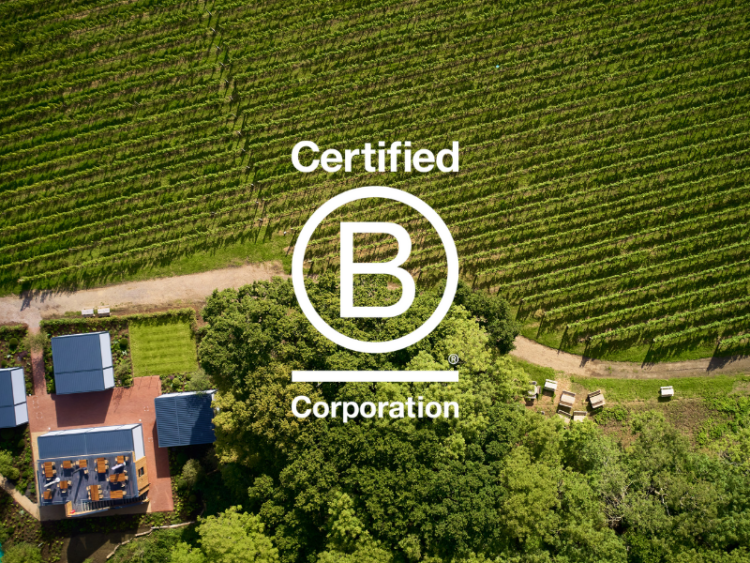
B Corp accreditation recognises purpose-driven businesses, balancing people, planet and profit. As a certified B Corp since 2022, we continue to guide the wine industry towards a more sustainable future, promoting practices that benefit both our community and the environment. We’re proud to be part of a change-making community of the world’s most innovative and inspirational brands, blazing a trail for sustainable business around the globe.
B Corp’s core philosophy has always been a part of Ridgeview’s DNA. Our sustainability commitments continue to focus on long-term improvement, reducing carbon emissions and increasing renewable energy use. Our goal is to achieve carbon neutrality through environmentally responsible production practices.
Discover how our B Corp journey began here and view our latest Impact Report below, to explore our progress and future goals.
B Corp Impact Report 2024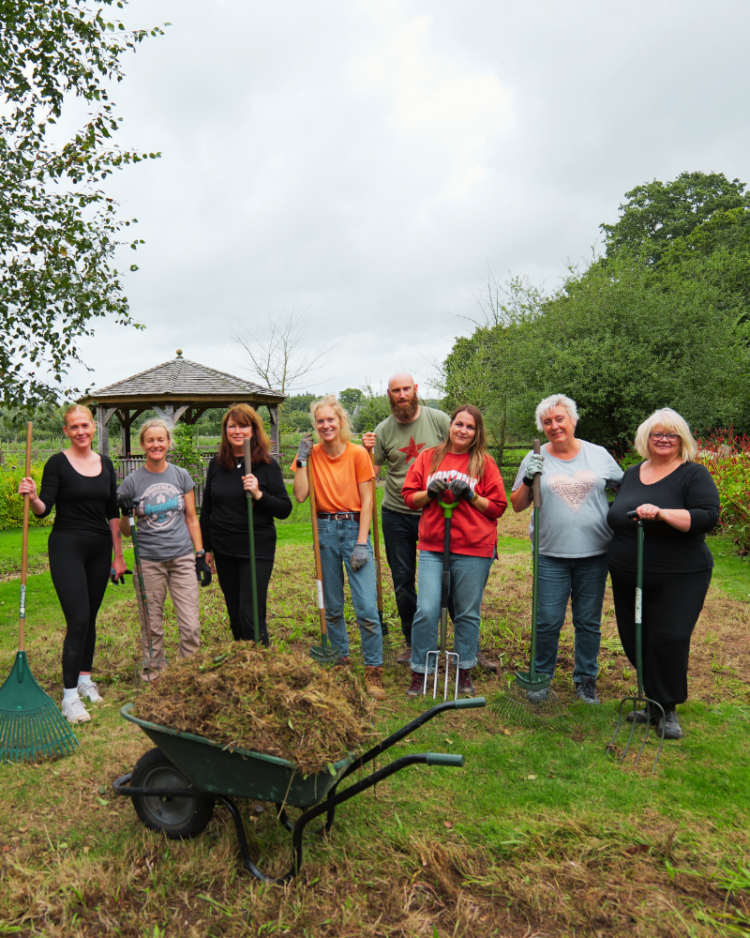
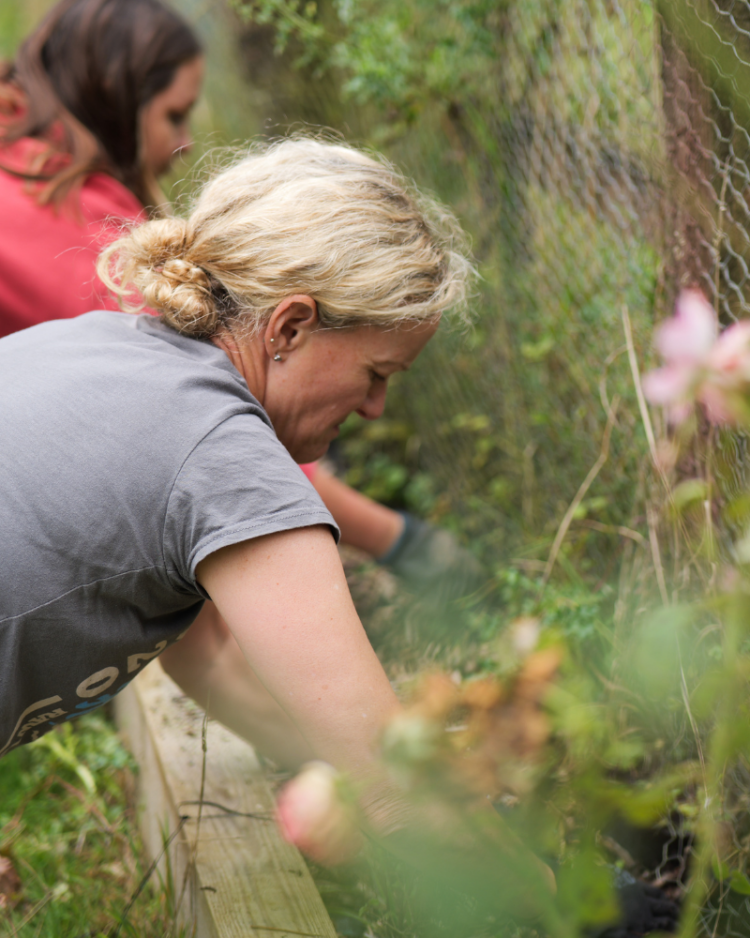
Not just our business, Ridgeview is our home. We believe in creating a positive social impact, supporting our local community and fostering a culture of social responsibility amongst our employees
Our team actively participate in community initiatives and paid volunteering days, from local wildlife conservation to environmental stewardship projects and charitable initiatives. We champion our employees’ endeavours to support causes close to their heart and believe in a caring culture of social responsibility.
“Businesses, like people, thrive when they genuinely embrace and support their local community. There is no set formula, and sometimes the smallest gestures can make the biggest difference to your employees and neighbourhood. Creating an environment where giving back is highly valued and actively encouraged is hugely important and rewarding.”
Tamara Roberts, CEO
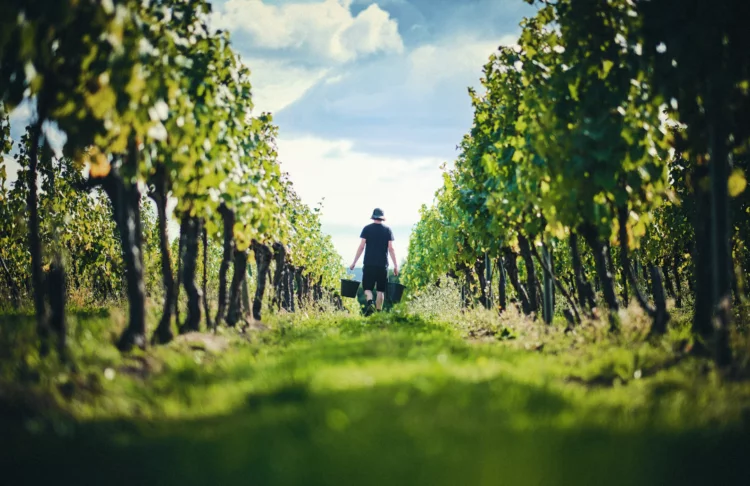
We apply conscious energy and waste practices across our operations. From solar energy and sensor-activated lighting systems to sustainable packaging, we continually strive to reduce our environmental
impact.
Our Bio-Bubble system naturally treats all waste water across the estate and, as of 2023, has cleaned 22 million litres of waste water (equivalent to 9 Olympic swimming pools).
We are making great strides in rainwater harvesting for grey water, a simple but fundamental change enabling more sustainable management of onsite bathrooms, vineyard spraying and washing of our machinery, as well as watering the diverse plant-life across the estate.
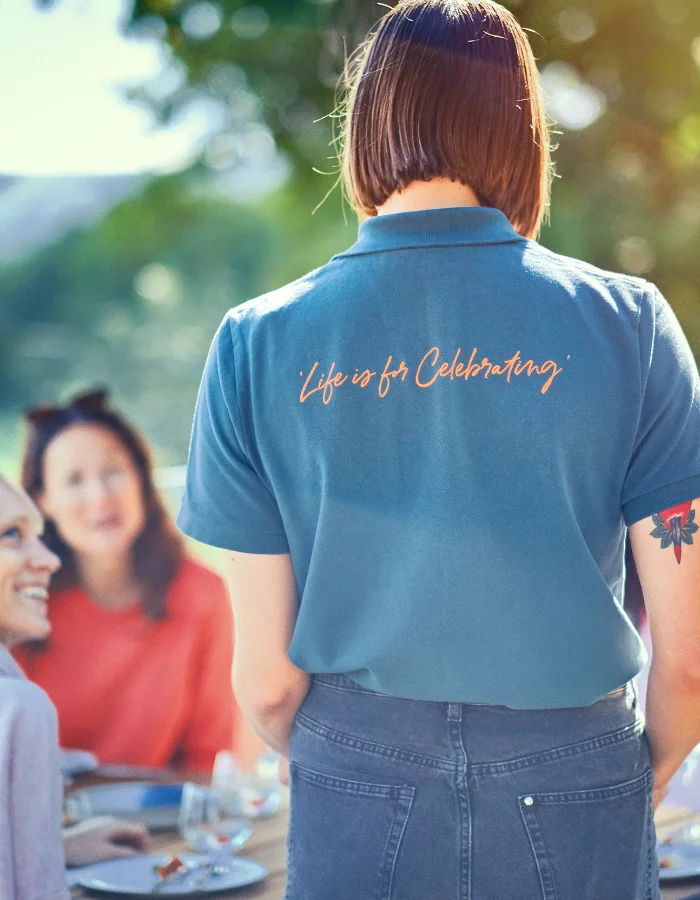
As a family business, we are dedicated to fair, respectful, and equal treatment for all employees. Proud supporters of the Real Living Wage campaign, we ensure our pay structure recognises each employee’s ability, experience, and commitment.
We actively promote diversity and equality within our workforce and have implemented gender pay analysis and inclusive employment practices. As members of Disability Confident, we support workplace equality and provide annual health and well-being check-ups, adhering to MSDC guidelines, alongside a positive mental health programme.
Our commitment to sustainable employment aligns with our social and environmental goals, reflecting our dedication to the well-being of our team and the industry’s broader sustainability challenges.
We have implemented a gender pay analysis, support equality and diversity employment practices and are members of Disability Confident. We hold annual staff health and well-being check-ups in line with MSDC guidelines and follow a positive mental health programme.
We champion sustainable employment practices, ensuring our social responsibility aligns with our environmental goals. Our gender pay analysis and mental health programmes reflect our dedication to the well-being of our team, while also addressing broader sustainability issues within the industry.
Sustainable winemaking is an a approach to wine production that balances environmental stewardship, social responsibility, and economic viability. Rooted in the United Nations’ definition of sustainability – “meeting the needs of the present without compromising the ability of future generations to meet their own needs” – sustainable winemaking involves practices that prioritise ecological health, support communities and ensure the wine industry’s long-term resilience.
Sustainable winemaking includes a range of practices designed to reduce the wine industry’s carbon footprint, preserving natural resources and supporting communities to thrive.
Sustainable vineyards focus on natural methods, minimising chemical use and enhancing soil health through practices like natural pest control, cover cropping and organic soil enrichment.
Many sustainable wineries recycle and reuse waste, transforming grape skins into compost while minimising packaging waste through the use of sustainable and recyclable materials to lower environmental impact.
Wineries committed to sustainability incorporate energy-efficient technology and renewable energy sources, such as solar or wind power, to minimise greenhouse gas emissions and reduce their carbon footprint.
Sustainable wine production carefully manages water using efficient irrigation techniques, rainwater harvesting, and wastewater recycling to reduce water waste and protect this critical resource.
Sustainable winemaking considers the entire supply chain, prioritising locally sourced materials, ethical suppliers, and eco-friendly transport methods to reduce environmental impact from vine to glass.
Packaging is another critical area, with sustainable wine production opting for lightweight, recyclable, and eco-friendly materials that reduce transport emissions and waste.
Sustainable wines are important because they represent a commitment to preserving the environment, supporting communities, and ensuring a thriving future for the wine industry. Choosing sustainable wine helps reduce the wine industry’s carbon footprint, conserve resources, and protect soil health and biodiversity. Sustainable winemaking also plays a crucial role in social responsibility by prioritising fair labour practices, safe working conditions, and community engagement.
Economically, sustainability helps create resilient businesses capable of thriving in the long term, allowing high-quality wine production to continue while promoting responsible consumption. For consumers, sustainable wines offer a meaningful choice, allowing them to support environmentally responsible practices and a balanced approach to winemaking that benefits the planet, the people, and the wine industry for generations to come.
You must be of legal drinking age to enter this site.
Please enter your date of birth below